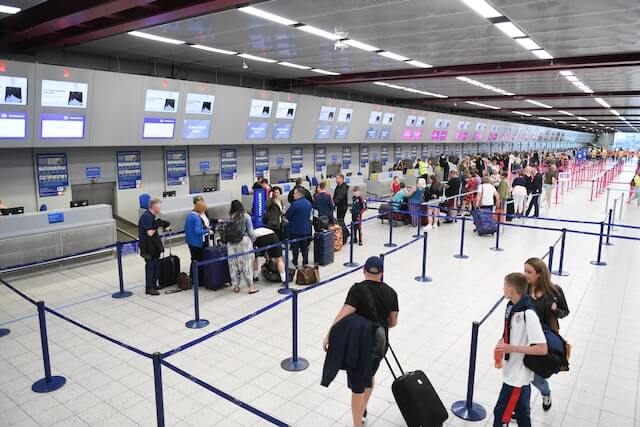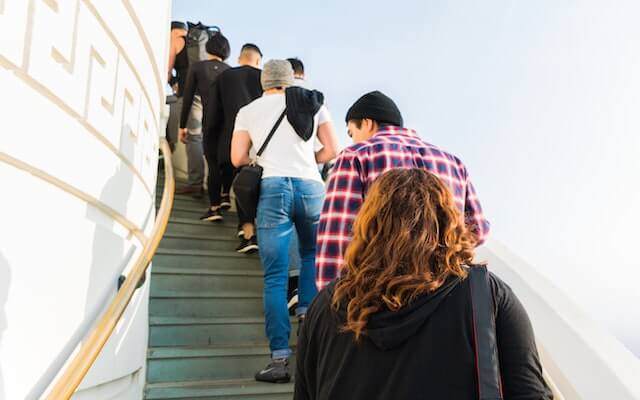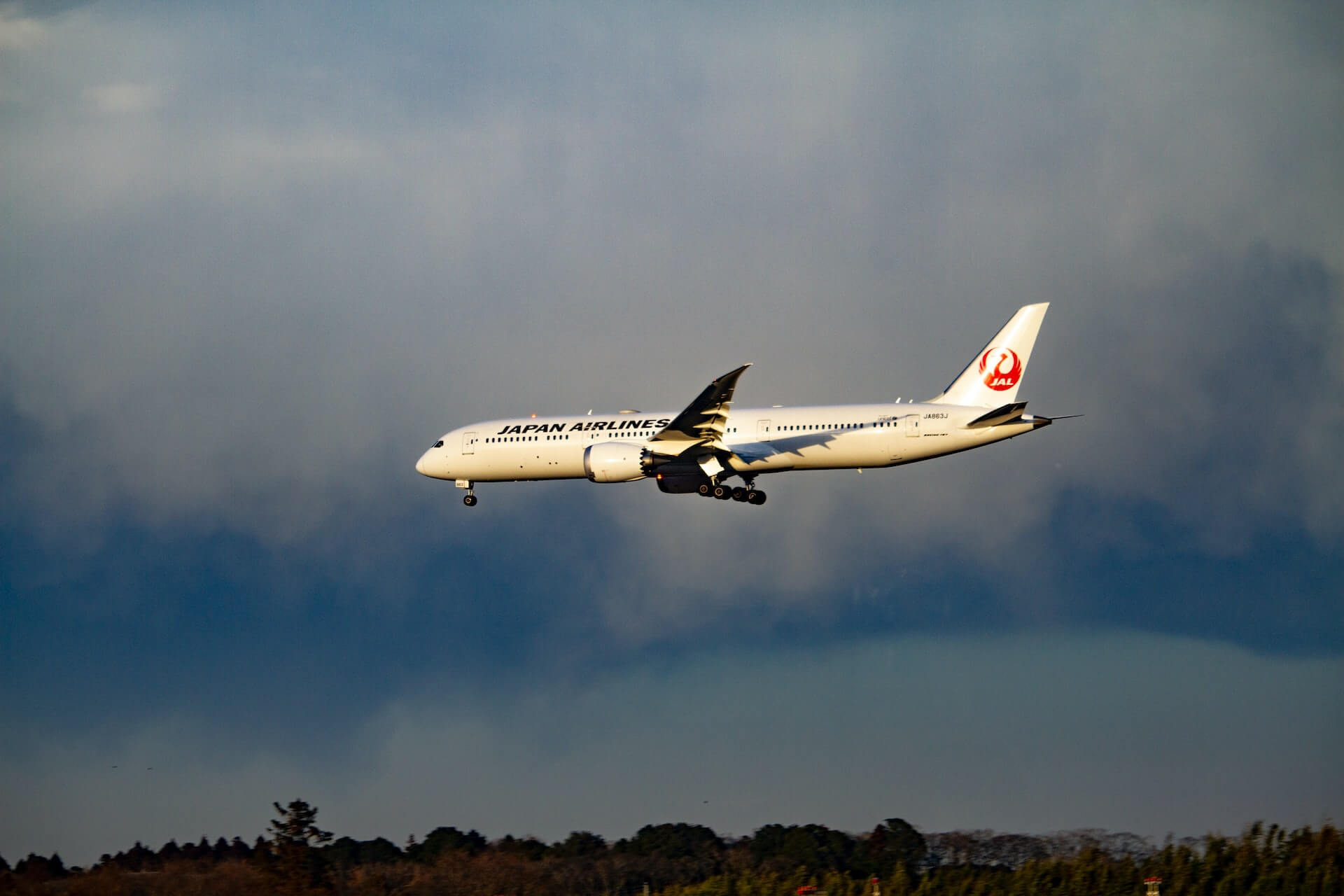People all over have had to white knuckle their cravings for Kobe beef and anime figures since Japan’s borders closed in 2019. Thankfully, the government decided to stop hogging all of their awesome stuff on October 11th.
Japan’s travel restrictions were lifted in October, meaning that you can enter the country if you provide proof of COVID-19 vaccination or a negative test result taken 72 hours before departure. Children under 18 don’t need anything if they’re accompanied by an adult with the proper documents.
Getting into the country is easy-peasy now, but there are still some things to keep in mind before departing and after you land. I’ll try to make it as straightforward as possible in this article.
Japan Entry Requirements
Until recently, the Japanese Ministry of Foreign Affairs (MOFA) separated travelers into different categories based on things like vaccination status and recent countries visited. It was even tough for those living in Japan for a long time.
Those restrictions have loosened, but international travel to Japan still requires you to be vaccinated up to at least three doses.
There’s also mention of travelers potentially being subject to testing upon arrival, but that’s limited to countries where the omicron variant is not dominant. Currently, no countries fall under that category.

Photo by Phil Mosley
Do You Need a Certificate of Testing For COVID-19 in Japan?
You don’t need a pre-boarding COVID test to fly to Japan if you’re vaccinated. Up until the latest loosening of regulations, it was mandatory for certain travelers to fill out an official form. Fortunately that’s no longer necessary.
Unvaccinated Travelers to Japan
If for any reason you’re unvaccinated, you’re not completely out of luck. You can still travel internationally to Japan, but you’ll need to complete a COVID-19 test within 72 hours of departure and provide a certificate stating the negative result.
There’s a whole list of items that must be included on the test certificate from your name to the medical institution that issued it. The Ministry of Health, Labour, and Welfare (MHLW) outlines the exact conditions for a COVID-19 test form and includes a blank version of the certificate for you to print off.
Most important of all the rules is that only certain testing methods are considered valid, so make sure you’re getting the right one from the list mentioned in the link above.
Children Traveling to Japan
If you’re coming to Japan with under-18 kids in tow, you don’t need to worry about pre-departure tests as long as the accompanying adult is vaccinated. Children coming on their own are a different story, however.
What To Prepare Before Leaving Your Home Country

To avoid any kind of travel restrictions, you’ll want to get a few things straight before heading out on your adventure.
First, you need to get your vaccination certificate in order.
Second, you’ll want to answer some pre-departure questions with the mySOS app.
Vaccination Certificates
To enter Japan, you’ll need proof of at least 3 doses of COVID vaccines. That means having a certificate that follows the MHLW’s 3 rules:
- “The certificate must be issued by a government or public institution.”
- “The items must be indicated in Japanese or English.”
- “The certificate must clearly show that you have received 3 doses of any of the following vaccines on the Emergency Use Listing of World Health Organization (WHO).”
The WHO (not the band) has compiled a list of approved vaccines.
Do I Have To Install The MySOS App?
The short answer is no, you don’t have to install the mySOS app on your smartphone. The longer answer is that installing the app and filling out the questionnaire prior to departure will make entry smoother because regardless of your vaccination status, you’ll need to answer immigration’s questions sooner or later.
When you get off the airplane and enter the airport, one of the first things you’ll see is a line of gates herding people into two groups: app users and non-app users. I recently went through the paces on a return trip to Japan and saw that those who installed the app beforehand got through immigration MUCH quicker.
The app allows you to scan things like your COVID vaccination certificate, pre-departure test, and passport to smooth immigration procedures.
And the moment you step out of the immigration line you can remove it from your phone.

Photo by Levi Jones
MySOS Web Application
Privacy concerns are understandable, so if you absolutely don’t want to install the app you can fill out the questionnaire via the MySOS website. You’ll still be asked to scan your passport and vaccine certificate, but at least you won’t have the app on your phone. When you’re finished answering the questions, you can print off the final result page.
Japan Quarantine Rules For Foreigners
Getting into the country only to face a lengthy quarantine used to be a legitimate fear under the old set of travel restrictions to Japan. Fortunately, quarantine requirements are a lot looser now, too.
Whether you provided a vaccination certificate or, if you’re unvaccinated, a pre-departure negative test result, you don’t need to quarantine.
The only way you would need to quarantine in Japan is if you’re suspected of having contracted COVID-19.
In that case, you would need to take a test at the airport, and if it’s positive, you’ll need to quarantine for some length of time depending on circumstances like when you’re thought to have been infected and whether you’re vaccinated or not.
In the past, quarantine has involved a written pledge, a monitoring app, and occasional calls from authorities checking up on you. It’s unclear how much of that is required these days, though.
At the very least, those who face quarantine will have to give the name of their accommodations and remain for a specific length of time. They may also be barred from using public transportation.
Japan COVID Restrictions
Once you’ve jumped through all of the immigration hoops, you’re free to enjoy your Nippon adventure! Relatively speaking…
COVID culture in Japan is still very different from most places around the world, particularly North America and Europe.
For the most part, there are no hard COVID rules that have consequences if broken, but as with most things in Japan social pressures are hard to resist.
Mask Culture
Go inside any store, train station, or place of business and you’ll be greeted with a reminder to wear a mask.
Some of those reminders will come in the form of posters, some will be blared over an intercom, and some will be hinted at via cute mascots with their faces covered.
You’ll even see people wearing masks outdoors. I’m just about the furthest thing from an anti-masker, but even I find this… hot.
At the very least, do your best to keep your face wrapped up when indoors.

Photo by Jérémy Stenuit
Proof Of Vaccination For Events and Businesses
Early on in the pandemic there were talks of implementing vaccine passport systems, but those never really took hold. It might not hurt to carry your vaccine certificate with you if you have one, but it’s unlikely that you’ll be asked for it anywhere.
Instead of barring unvaccinated people, many businesses opt to incentivize safety with deals for those who present vaccine certificates or negative PCR tests. Universal Studios in Osaka, for example, offered certain small discounts (link in Japanese).
Other COVID Culture
When it comes to some of the other staples of the pandemic like social distancing, I feel like some places in Japan have tried harder than others. You’ll still see things like alcohol dispensers at just about every store you set foot in. It’s all optional, but do your best to comply.
Final Thoughts
With the October 11th changes to border policies, traveling to Japan is simple. Just prepare either a vaccine certificate or negative PCR test along with the mySOS questionnaire and you’re ready to go.
Once you’re here, mind the local etiquette by masking up. After that, the only thing left is to have a great time!





Pingback: 5 Pros and Cons of Living in Japan - Forever Foreign Podcast
Pingback: Love at First Japan - Forever Foreign Podcast